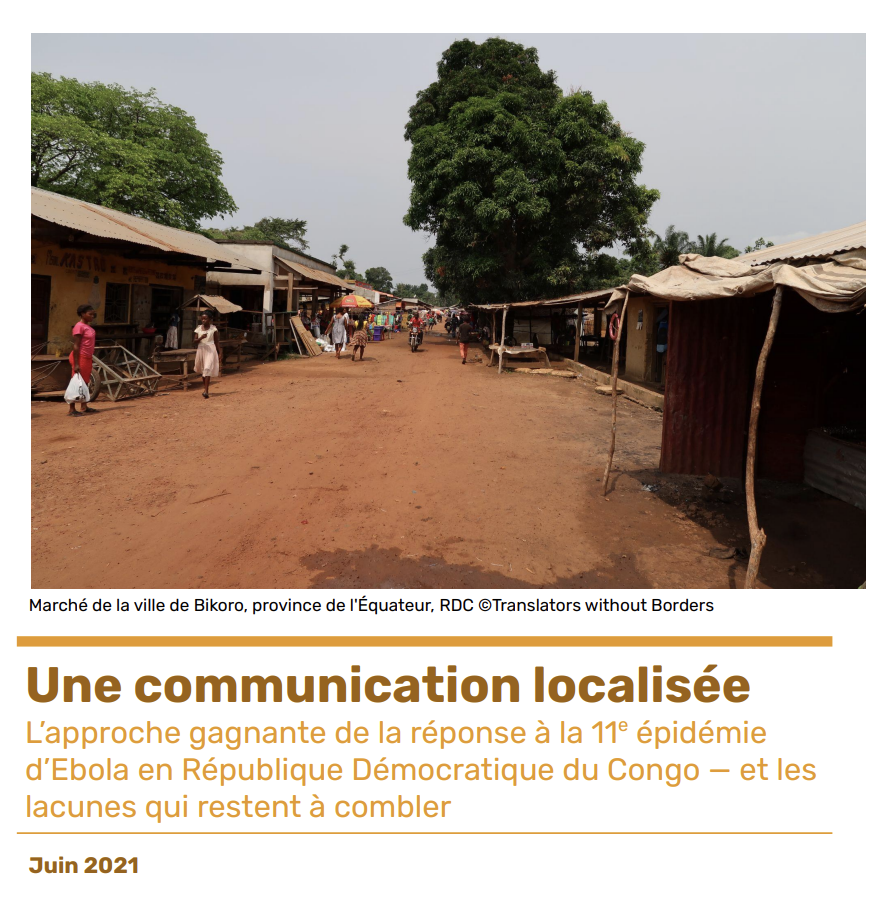Localized communication minimizes the impact of Ebola in DRC
Description
The response to the 11th Ebola outbreak in the Democratic Republic of Congo (DRC) proved the merits of local, multilingual communication with communities. TWB’s research found significant progress compared with the response to the 10th outbreak, and to the many humanitarian emergencies that have affected DRC to date. However, our research also highlighted the need for national and international organizations and authorities involved in the response to better support local communicators.
The DRC’s 11th Ebola outbreak spread in Equateur Province, claiming the lives of 55 people and infecting 130 over nearly six months. This outbreak came less than two years after the end of the last outbreak in the area, affecting remote and hard-to-access villages, home to various ethno-linguistic groups. Response teams focused on engaging mostly local health workers, supporting people to conduct local case surveillance, and limiting the use of personnel from outside the community. Authorities declared the outbreak over on 18 November, 2020.
In December 2020, TWB set out to understand the language lessons learned from this response. The findings can improve risk communication and community engagement for future disease outbreaks and the broader humanitarian response across the country.
Additional languages

DETAILS
Publication
Authors
Emergency
Language
Region
Keywords

